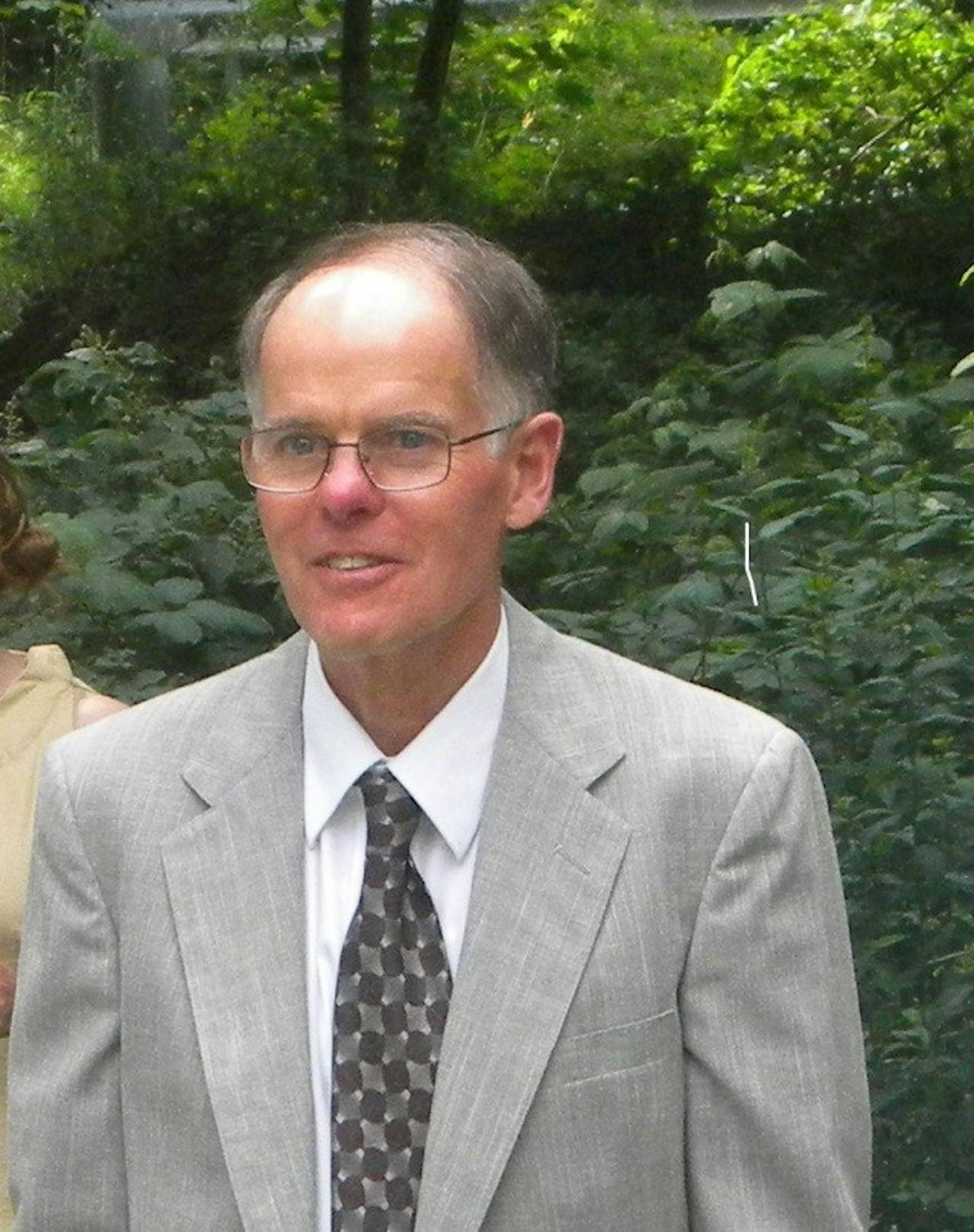David E. Cochrane, who was a professor of biology at Tufts for 38 years before retiring in 2014, passed away in Essex Junction, Vt. on Nov. 7.
Cochrane was born in Cold Spring, N.Y. in 1944 and grew up on a chicken farm in the nearby small town of Fishkill. Growing up on the farm, Cochrane developed a great passion for animals and studied animal science at Cornell University, according to his daughter Jessica King (LA ’02).
King said that when Cochrane began pursuing a Ph.D. at the University of Vermont, his focus shifted to physiology. After a few years of pursuing postdoctoral study at Yale University, Cochrane arrived at Tufts in 1976.
Longtime colleague Harry Bernheim, an associate professor of biology who started teaching at Tufts just three years after Cochrane did, described Cochrane as gentle, kind and brilliant.
For much of both professors' careers they taught General Physiology I and II together, leading students to dub the courses “The Harry and Dave Show,” according to Bernheim.
“[Students] often said that [Cochrane] was like Mr. Rogers and had a California effect, whereas I was more East Coast and high strung, so we were sort of a complementary pair since my personality was somewhat different than his," he said. "Students liked that one was calm and cool and one was frenetic and agitated."
King attributed comparisons to Fred Rogers to Cochrane’s warmhearted demeanor, as well as his habit of wearing zip-up sweaters reminiscent of the beloved PBS personality.
In his own way, Cochrane had a knack for performance. Bernheim recounted an occasion when members of the biology department filmed a video for an ill colleague in which Cochrane taught physiology in character as Rogers.
Cochrane was a performer with range too. Bernheim said that when teaching General Physiology II, he and Cochrane once performed a physiological version of Mel Brooks and Carl Reiner’s trademark 2000-year-old man comedy routine.
King said her father made strong connections with his students.
“I stopped by his office nearly every day to hang out and talk and there were always students there -- always. At least one, usually multiple," she said. "He was working with them, teaching them, meeting with them, talking on the phone. He just put an enormous amount of time and energy into his students.”
Bernheim said that over 38 years, Cochrane worked with about a hundred students in his lab.
One of those former students, Phil Riback (LA '79), wrote of his gratitude to Cochrane in comments read at Cochrane’s 2014 retirement party.
“Not only would he point out the flaws in our experimental design gently, but he was visibly excited and accepting when we came up with novel ideas,” Riback said.
In addition to a passion for his students, what also motivated Cochrane to enter academia was research, King said. The focus of that research was the mast cell -- a white blood cell that releases many of the molecules, like histamine, which are associated with inflammation, according to Bernheim.
According to a faculty resolution on his retirement in 2014, written by biology department Chair and Professor Sergei Mirkin, Cochrane published 58 peer-reviewed papers over the course of his career, including groundbreaking research on inflammation and the mast cell.
Bernheim said that Cochrane's research introduced new ways of understanding and reducing inflammation at the cellular level.
“If you knew what could cause the activation of these cells -- what could cause them to degranulate -- then you could potentially find pharmacological molecules which would block those stimulators,” Bernheim said.
Outside the lab and the classroom, Cochrane was a sports and outdoor enthusiast. He started running from a young age and continued to do so until he was no longer physically capable, King said. She added that Cochrane went to the gym almost daily.
Cochrane also enjoyed hiking, having summited all 46 high peaks in the Adirondack Mountains. He took annual week-long hiking trips, which Bernheim said always seemed to be accompanied by terrible weather.
Cochrane also maintained a large garden at his Acton, Mass. home and was the steward of a local nature reserve, according to the resolution on his retirement.
When he was not running, hiking, teaching or in his garden, Cochrane would share his passion for physiology with his family, King said.
“Growing up sitting around the dinner table, the conversation would always go to physiology of some kind or nature of some kind, and understanding how one organ or biological system works,” King said.
One of the things King remembered most about her father was how much he cared about human relationships.
She recalled how her father said that he took frequent trips from his office to the biology department's main office so that he would have a chance to talk to people he knew and loved in the hallways.
“He was really intentional about taking the time to go and see everyone,” King said.
David Cochrane, longtime professor of biology, dies at 74

David Cochrane, former professor of biology at Tufts, is pictured.





